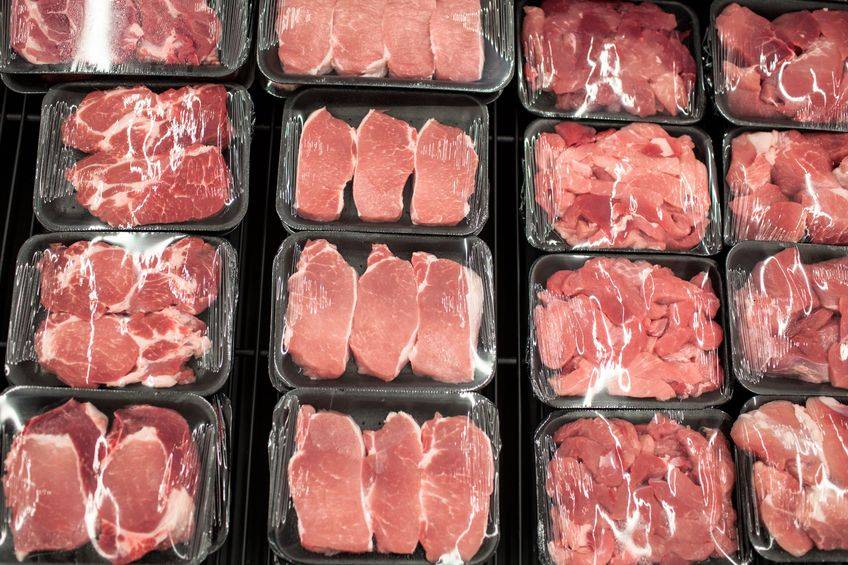
The number of meat products recalled in the US due to contamination has increased by 83 percent since 2013, according to a consumer watchdog.
US PIRG's (Public Interest Research Group) new report 'How Safe is Our Food?' reveals how 'fundamental flaws' in the US food safety system have led to a jump in these recalls since 2013.
From E. coli-infected romaine lettuce to Salmonella-tainted beef, contaminated foods lead to illnesses that sicken as many as 1 in 6 Americans annually, according to the group.
In 2018, this epidemic helped spur major recalls, which caused stores and restaurants to throw away millions of pounds of meat and produce.
Key findings from this year’s report include an 83% increase in meat and poultry recalls that can cause serious health problems.
The US Department of Agriculture (USDA) Class 1 recalls “involve a health hazard situation in which there is a reasonable probability that eating the food will cause health problems or death.” This includes recalls of beef for E. coli, poultry for Salmonella, and others.
'Archaic laws'
The report criticises 'archaic laws' which allows meat producers to sell contaminated products. According to the watchdog, it is currently legal to sell meat that tests positive for dangerous strains of Salmonella.
For example, a case study of the recent recall of 12 million pounds of beef sold by food processing company JBS could likely have been prevented if it this policy was changed.
The report also highlights how bacteria-contaminated water has been used on vegetables and produce. It uses an example of how irrigation water polluted by faecal matter from a nearby cattle feedlot likely contaminated romaine lettuce with E. coli in the spring of 2018.
Adam Garber, US PIRG Consumer Watchdog, said: “The food we nourish our bodies with shouldn’t pose a serious health risk. But systemic failures mean we’re often rolling the dice when we go grocery shopping or eat out.”
Viveth Karthikeyan, US PIRG Consumer Watchdog Associate, added: “These recalls are a warning to everyone that something is rotten in our fields and slaughterhouses. Government agencies need to make sure that the food that reaches people’s mouths won’t make them sick.”
UK-US standards
The report's release will likely fuel concern in the British farming industry as the UK looks to the US to strike up a free trade deal.
There are concerns that an influx of cheap and lower welfare meat could substantially disadvantage the industry.
Government Ministers have insisted that they will protect British agricultural standards in all trade negotiations, but US president Donald Trump's commerce secretary, Wilbur Ross, has said that any post-Brexit deal with Washington would hinge on the UK scrapping the kind of standards operated under membership of the European Union.
Meanwhile, US pig producer group the National Pork Producers Council said that any trade agreement with the UK and US post-Brexit needs to be based on US production practices.
Chlorine washed chicken and hormone injected beef have been cited as examples of the food that could find its way onto the UK market following any deal.
'Europeanisation benefits'
Tim Lang, professor of food policy at City University, London, has warned that post-Brexit trade with the United States could result in imports of pork produced using growth promoters and gestation crates banned in this country.
“Years of effort by UK NGOs, public and scientists pushed EU to better welfare. It must not be horse-traded away,” said the professor on his twitter account after raising his concerns in a national newspaper interview.
“The UK must defend europeanisation benefits. UK versus CAFO-farming USA will be unequal contest. Does Mr Fox know this?” he said.
His concerns echo those of the National Pig Association (NPA), which says that, according to 2017 figures, US pig farmers can produce pork for 50 pence per kilogramme less than British producers because of the methods they use.
“Our costs are vastly inflated by standards. Unlike US pig farmers, we’re not allowed to use hormones, ractopamine or keep pigs in stalls,” said NPA vice chairman Rob Mutimer.
